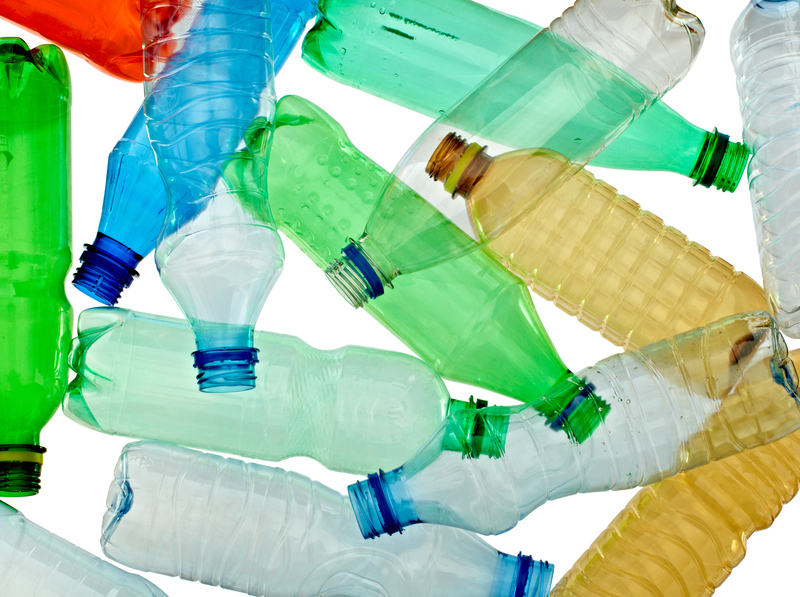Smart Strategies to Use Less Plastic
Posted on 28/10/2024
Plastic has become an integral part of our daily lives, and while its convenience is undeniable, the environmental cost is staggering. With millions of tons of plastic waste ending up in our oceans and landfills each year, reducing our plastic consumption is a critical step towards a more sustainable future. This article will explore smart strategies to use less plastic, offering practical advice and insights to help you make a difference.
1. Adopt a Zero-Waste Mindset
The first step towards using less plastic is to adopt a zero-waste mindset. This involves rethinking your consumption habits and aiming to reduce, reuse, and recycle wherever possible. Consider the following actions:
- Assess Your Plastic Use: Take stock of the plastic items you use daily. Identify the unnecessary plastics and seek alternatives.
- Plan Before You Purchase: Before buying new products, especially those packaged in plastic, ask yourself if they are essential and if there are more sustainable options.
- Educate Yourself and Others: Learn about the impact of plastic pollution and share this knowledge with friends and family to raise awareness.

2. Switch to Reusable Items
One of the most effective ways to reduce plastic waste is by switching to reusable items. Here are some easy swaps:
- Reusable Bags: Replace single-use plastic bags with reusable cloth or mesh bags for shopping.
- Water Bottles: Invest in a durable, reusable water bottle to avoid buying bottled water.
- Food Containers: Use glass or stainless steel containers instead of plastic ones for storing food.
- Straws and Utensils: Carry a set of reusable straws and utensils to avoid single-use plastic versions.
3. Buy in Bulk
Buying in bulk can significantly reduce the amount of plastic packaging you bring home. Consider the following tips:
- Shop at Bulk Stores: Many stores now offer bulk bins for grains, nuts, spices, and other dry goods. Bring your own containers to fill.
- Avoid Pre-Packaged Foods: Choose fresh produce and items that are not pre-packaged in plastic whenever possible.
- Support Local Markets: Shopping at farmers' markets can reduce plastic usage as vendors often use less packaging.
4. Make Eco-Friendly Swaps in Household Products
Household products often come in plastic containers or involve plastic components. Consider these eco-friendly swaps:
- Cleaning Supplies: Opt for cleaning products in refillable containers or make your own non-toxic cleaners with ingredients like vinegar and baking soda.
- Personal Care Products: Choose solid shampoos, soaps, and conditioners, and look for brands that use minimal or recyclable packaging.
- Disposable Items: Swap out disposable items like razors and toothbrushes for reusable or bamboo alternatives.
5. Support Plastic-Free Initiatives
Supporting initiatives that aim to reduce plastic waste can amplify your impact. Here are some ways to get involved:
- Participate in Clean-Up Drives: Join local community clean-up events to remove plastic waste from parks, beaches, and other public spaces.
- Advocate for Policy Change: Support policies that aim to reduce plastic production and promote recycling. Contact your local representatives to voice your concerns.
- Support Plastic-Free Businesses: Choose to buy from companies that prioritize sustainable practices and minimal plastic packaging.
6. Educate and Inspire Others
Spreading awareness about plastic pollution and inspiring others to take action is crucial. Here are some ways to make a difference:
- Share Your Journey: Document and share your plastic reduction efforts on social media or through a blog to inspire others.
- Host Workshops: Organize or attend workshops on sustainable living and plastic reduction strategies.
- Engage in Conversations: Talk to your friends, family, and colleagues about the importance of reducing plastic use and encourage them to make changes.

7. Innovate and Create
Innovation plays a key role in solving the plastic crisis. Here are some ways to contribute:
- Experiment with Alternatives: Research and experiment with alternative materials to plastic in everyday items, such as biodegradable packaging or reusable beeswax wraps.
- Support Sustainable Innovation: Support start-ups and companies that focus on creating sustainable alternatives to plastic.
- Engage in Citizen Science: Participate in citizen science projects that aim to address plastic pollution through research and innovation.
Conclusion
Reducing our plastic consumption is not just a personal choice; it's a collective responsibility that can have a significant impact on our environment. By adopting a zero-waste mindset, making simple swaps in our daily lives, supporting plastic-free initiatives, and spreading awareness, we can contribute to a more sustainable future. Each small action adds up, and together, we can create a world with less plastic pollution and a healthier planet for future generations.
Latest Posts
Planet-Friendly Disposal Strategies
House Waste Removal Made Easy: Top 5 Tools
Hard Rubbish: Identification & Disposal Tips





